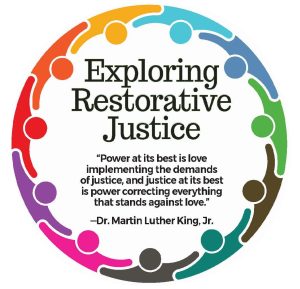The ROOT & SHOOT Research Coordination Network (RCN) is a partnership that spans the discipline of plant science, comprising organizations that seek to identify and remove systemic barriers that prevent full inclusion within the discipline.
Over the past year, a working group of compensated volunteers was tasked with identifying ways to make scientific conferences more welcoming and inclusive. Specifically, the Inclusive Conferences Working Group (ICWG), which includes over 20 members representing all seven RCN plant science societies, was asked to generate recommendations, codes, and guidelines relevant to this goal, and they distilled their work into five key recommendations (see LINK).
Two of the recommendations reflect widespread concerns about harmful or discriminatory behavior by conference attendees and the need for clear systems of accountability. Specifically, the ICWG recommended 1) an RCN-wide Community Agreement for conferences and participants, outlining principles and standards that support equity and inclusiveness, and 2) a reporting structure that provides accountability for the Community Agreement.
The ICWG developed a comprehensive statement of values and an aspirational community agreement (Link here), which they shared across the community in April 2023 (timeline link). Although the goal had been to adopt this community agreement in 2023 conferences, there was insufficient time for hosting organizations to determine how (or if) to integrate it with their current codes of conduct or community guidelines. The ICWG report also revealed that current reporting schemes and outcomes of community guideline violations are areas of uncertainty and concern for conference attendees and conference organizers.
Conference Ombuds Services
The Inclusive Conference Working Group identified personal safety and freedom from harassment and discrimination at conferences as significant concerns, particularly amongst people who experience significant intersections of oppression. Although many conferences provide methods through which violations of community agreements of codes-of-conduct can be reported, these systems are rarely used. Therefore, there is a need to identify whether the systems in place are adequate or need to be altered to function more effectively.
 Towards this end, ROOT & SHOOT has arranged for on-site Ombuds services at three conferences in 2023: Plant Biology 2023, Botany 2023, and the IS-MPMI 2023 congress.
Towards this end, ROOT & SHOOT has arranged for on-site Ombuds services at three conferences in 2023: Plant Biology 2023, Botany 2023, and the IS-MPMI 2023 congress.
Serving as a designated neutral, the Conference Ombud’s primary responsibility is to provide independent, confidential, informal and impartial assistance to the conference community (more information about the roles of Ombuds can be found at the International Ombuds Association website). The 2023 Ombuds service providers are Bathabile K.S. Mthombeni, JD, and Laura Minero, PhD, LP both members of the ROOT & SHOOT Experts Committee (see their biographical information below). Laura Minero will be on site at IS-MPMI Congress, and Bathabile Mthombeni at Botany and Plant biology meetings.
During the conferences, they will provide on-site as well as virtual Ombuds and mediation services and hold listening sessions to request feedback from conference attendees regarding current codes of conduct and support procedures. They will subsequently work with ROOT & SHOOT to identify needs and to develop a system of accountability based on principles of restorative justice.
Exploring Restorative Justice in a scientific community
 The criminal justice system that dominates our societies is based on assigning blame and meting out punishment. The focus is on the rules that have been broken, and typically emphasizes disciplining the offender rather than addressing the needs of the victim or the community.
The criminal justice system that dominates our societies is based on assigning blame and meting out punishment. The focus is on the rules that have been broken, and typically emphasizes disciplining the offender rather than addressing the needs of the victim or the community.
By contrast, restorative justice focuses not on prosecution and punishment, but on harm done and how to repair it. It expands the circle of stakeholders (those with a stake or standing in the events or case) beyond the governance and offender to include victims and community members also. Importantly, restorative justice has been shown to help the transgressor recognize the impact of their actions and work to make amends in ways that are meaningful to those they have harmed.
Restorative responses, rather than punitive responses, have consistently demonstrated positive outcomes in many settings. Why not in our own professional organizations?
Let’s try.
2023 Community Ombuds Biographical information
 Bathabile K.S. Mthombeni, J.D, M.S.LOD, PCC is the University Ombudsman for Binghamton University. She is also a coach and mediator, and the founder of Untangled Resolutions, providing DEIB policy, process, and procedure development and implementation services to schools and other organizations. Untangled Resolutions also provides Racial Intelligence and Racial Mindset coaching, training, and dialogue facilitation services primarily to White members of leadership teams and DEIB committees. Finally, Untangled Resolutions provides external ombuds services, leadership coaching, mediation, conflict management workshops, and conflict management systems design services.
Bathabile K.S. Mthombeni, J.D, M.S.LOD, PCC is the University Ombudsman for Binghamton University. She is also a coach and mediator, and the founder of Untangled Resolutions, providing DEIB policy, process, and procedure development and implementation services to schools and other organizations. Untangled Resolutions also provides Racial Intelligence and Racial Mindset coaching, training, and dialogue facilitation services primarily to White members of leadership teams and DEIB committees. Finally, Untangled Resolutions provides external ombuds services, leadership coaching, mediation, conflict management workshops, and conflict management systems design services.
Bathabile earned an A.B. in Sociology, cum laude, from Princeton University, a J.D. from Columbia Law School, and a graduate coaching certificate and M.S. in Leadership and Organizational Development from the Naveen Jindal School of Management at the University of Texas at Dallas. She holds a PCC level certification from the International Coach Federation.
Dr. Laura Minero (She/Her/Ella) is a Latinx, queer, gender expansive and formerly undocumented, bilingual and bicultural, immigrant licensed psychologist who specializes in working with BIPOC, 2SQT+, Spanish-speaking and immigrant youth and adults via her labor of love, Yolotl Libre Therapy, Training, and Consulting. She serves as an anti-racist, community healing, liberation, 2SQT+ and trauma-informed, culture of health consultant and has given numerous keynote speeches and trainings for international and national audiences.
Dr. Minero earned her Ph.D. in Counseling Psychology from University of Wisconsin-Madison in August 2020. Her scholarly work has included contributing to scientific consensus studies used to inform national policy as a 2019 Christine Mirzayan Science Policy and Technology Fellow with the National Academies of Sciences, Engineering, and Medicine. Her research with undocumented and asylum-seeking transgender immigrants and the intersections of transphobia, racism, and trauma was supported by Ford Foundation Predoctoral and Dissertation Fellowship awards. To learn more about Dr. Minero’s prior and ongoing experience, visit https://lauraminerophd.com/.
 This material is based upon work supported by the National Science Foundation under grant no DBI-2134321. Any opinions, findings, and conclusions or recommendations expressed in this material are those of the authors and do not necessarily reflect the views of the National Science Foundation.
This material is based upon work supported by the National Science Foundation under grant no DBI-2134321. Any opinions, findings, and conclusions or recommendations expressed in this material are those of the authors and do not necessarily reflect the views of the National Science Foundation.


0 Comments